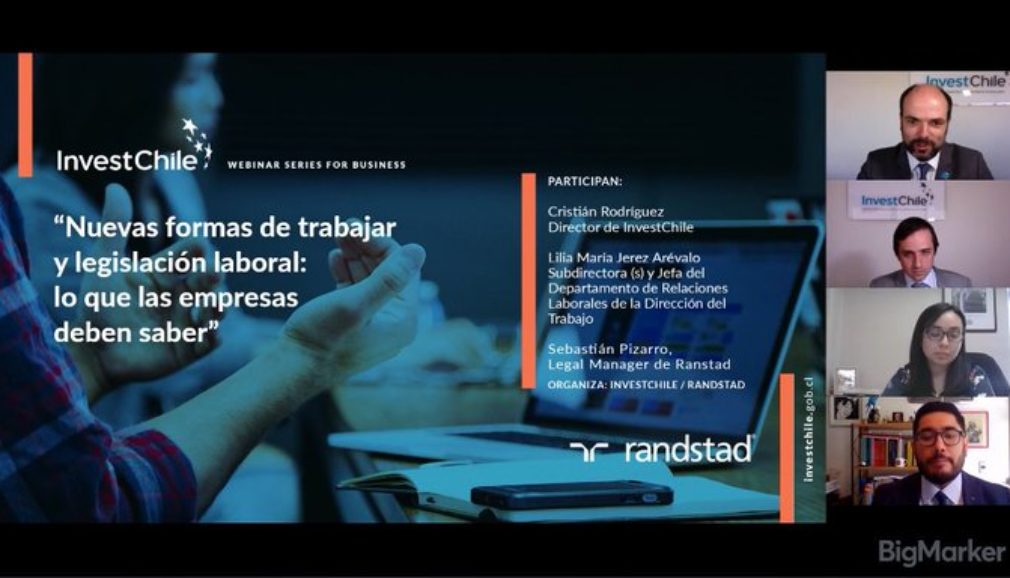
Essential information

Second InvestChile webinar analyzes legislation on remote working and unemployment insurance

- Over 170 people participated in the activity, organized together with the Randstad consultancy firm.
On Thursday, more than 170 people connected to the InvestChile webinar “New ways of working and labor legislation: what companies should know”. This was InvestChile’s second webinar and was organized in conjunction with the global human resources and employment services consultancy firm, Randstad, in order to review new labor legislation, particularly as regards remote working and measures associated with the Covid-19 pandemic.
The activity, which formed part of the agency’s series of InvestChile Talks, featured a presentation by Lilia Jerez, acting assistant director and head of the Labor Relations Department of the Directorate of Labor, who explained the details of the Law on Protection of Employment and Remote Working. In addition, Sebastián Pizarro, Randstad’s legal manager, talked about how remote working will change in response to the current situation.
The topics discussed included Law N° 21.220, which modified the Labor Code as it refers to remote working. This is of particular interest given that 51% of companies in Chile are using this form of work during the health crisis, according to the National Chamber of Commerce. Jerez stressed that it is the employer’s duty to create the conditions for the provision of services and to guarantee safety and health.
Another topic of special interest was Law N° 21.227, which permits payment of remunerations through the unemployment insurance program. Jerez pointed out that, if using this option, which is part of the measures adopted by the government to address the crisis, the employer must still pay the employee’s pension and health contributions.
Pizarro indicated that the “new normal” will boost remote working in Chile “and this will persist once the health emergency is over” considering that 30% of companies believe that it raises productivity and 46% expect to continue to use it. “This new normal will pose new questions, related to the right to disconnect, whether an accident while working at home is a labor or domestic accident, and how all this will be enforced,” said Pizarro.
To see a video with the presentations, click here.







